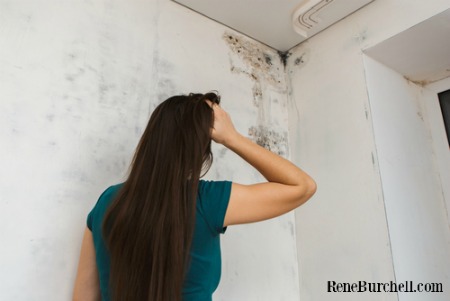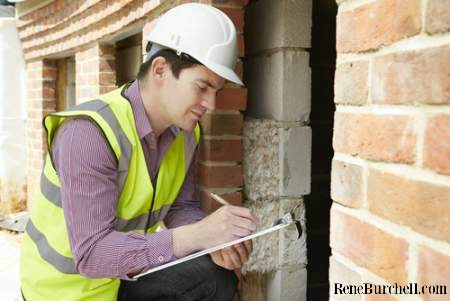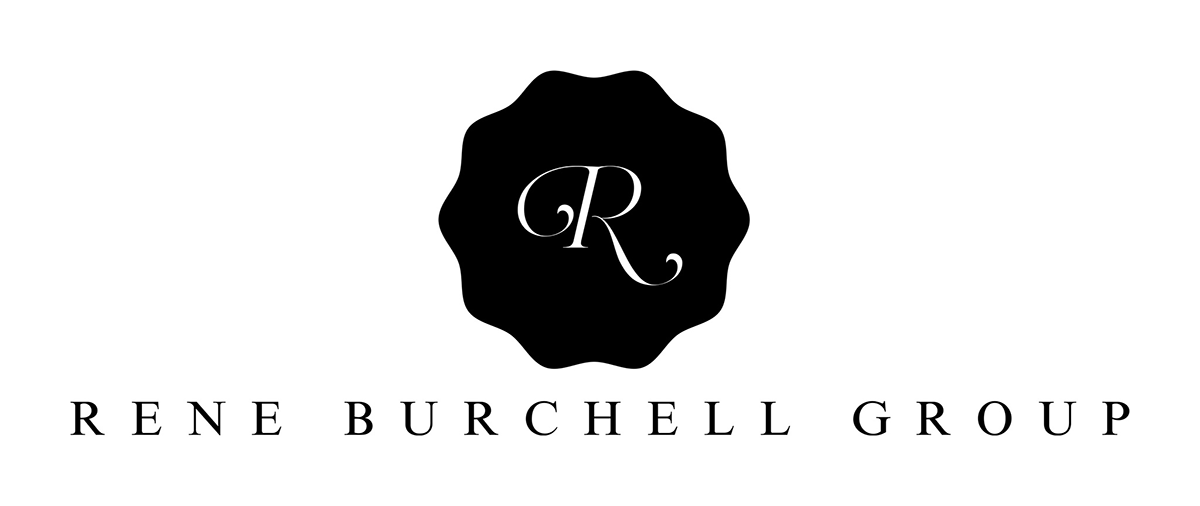When you decide the time is right to buy a home, you will no doubt, experience many emotions from excitement to anxiety and everything in between. After weeks or even months of searching you’ve finally found the home of your dreams. But, what if you discover that home has a mold problem? Mold spores are a fungus that grows in moisture. The spores multiply and can spread throughout the home. Health concerns range from mild to serious. Before you purchase a home with mold damage, there are a few considerations you must make.
How Does Mold Get into a Home?
 Unfortunately, mold can thrive in a home where even small amounts of moisture are present. There are many factors that can contribute to mold growth. Every day activities can encourage mold growth and chances are you don’t even think about the problem that could be growing in your home. Some of these activities include:
Unfortunately, mold can thrive in a home where even small amounts of moisture are present. There are many factors that can contribute to mold growth. Every day activities can encourage mold growth and chances are you don’t even think about the problem that could be growing in your home. Some of these activities include:
- Cooking with the lid off, releasing steam
- Taking a hot shower or bath that creates steam
- Drying clothes on an indoor clothes rack, filling the air with moisture as the water evaporates
- Using a humidifier
- Storing damp firewood
- Watering plants
- Storing vegetables such as potatoes and squash
As you can see, sources for mold can include activities we repeat every day. We don’t usually view these activities as harmful to our health, but anything that contributes to the growth and spread of mold is harmful.
Another cause of mold is water damage. If the home was ever in a flood, chances are good that there is at least some mold damage. Some mold damage happens over a long period of time and is the result of a slow water leak. It is wise to periodically inspect ceilings in your home to look for any water leaks.
Health Concerns & Risks
It should go without saying that the more mold you’re exposed to the more serious your health problems will be as a result. Most people can be exposed to small amounts of mold and suffer little to no effects. However, certain individuals, such as the elderly, those with a compromised immune system and infants can experience severe negative effects on their health. Health problems with mold can be life-long and in some instances, can prove fatal.
Health issues associated with the exposure to mold are extensive and range from mild to severe. Individuals often do not know there is a mold problem within the home although they develop symptoms. Some symptoms can be attributed to other illness. Because mold isn’t suspected early on, most people develop more severe health problems because of prolonged exposure. Common symptoms of mold exposure include shortness of breath, sore throat, fatigue, depression, nerve damage, and irritated eyes.
Many of these symptoms are often mistaken for allergies or illness attributed to another cause. The severity of symptoms can vary greatly from person to person. What makes one person extremely ill can have little impact on a different individual.
Importance of Home Inspection
 No one wants to deal with a mold problem, especially when you are buying a home. The home of your dreams could be hiding a dirty little secret because mold is not always easy to detect. The seller is anxious to sell the home and close the deal, so you can’t depend on the seller to tell you there are mold issues. Therefore, it is up to you, as the buyer, to search out any problems with mold in the home. This is where a home inspection comes in. Your lender is going to require you to obtain a home inspection to determine if there are problems with the home. One of the problems the inspection will uncover is the presence of mold. A lender doesn’t want to lend you money for a home that has been taken over with mold. An experienced home inspector will notice things that you may not. For instance, a home inspector may notice obvious water damage to which you’re oblivious. He or she will be looking at areas in the house that you may not think to look, and this could uncover mold issues. Your inspector will tell you if mold damage is suspected. In addition to the home inspection, you can also:
No one wants to deal with a mold problem, especially when you are buying a home. The home of your dreams could be hiding a dirty little secret because mold is not always easy to detect. The seller is anxious to sell the home and close the deal, so you can’t depend on the seller to tell you there are mold issues. Therefore, it is up to you, as the buyer, to search out any problems with mold in the home. This is where a home inspection comes in. Your lender is going to require you to obtain a home inspection to determine if there are problems with the home. One of the problems the inspection will uncover is the presence of mold. A lender doesn’t want to lend you money for a home that has been taken over with mold. An experienced home inspector will notice things that you may not. For instance, a home inspector may notice obvious water damage to which you’re oblivious. He or she will be looking at areas in the house that you may not think to look, and this could uncover mold issues. Your inspector will tell you if mold damage is suspected. In addition to the home inspection, you can also:
- Look for obvious signs of mold. Even the most untrained eye can spot mold that is right in front of them.
- Ask the seller to disclose to you any problems with mold. Some states have in place laws that require a seller to disclose any problems with the home, including mold. In states where the seller is required to tell you about problems, such disclosures are limited to those problems that the seller knows about, or reasonably should know about. The seller is not required to go through the home and perform an in-depth search to find issues with the home.
- Make your offer with a mold contingency. An offer that contains a mold contingency will allows you to revise or revoke your offer if, during the home inspection, mold is found in the home. Mold testing is expensive and usually isn’t necessary when mold is visible on surfaces. However, if you’re ready to buy the home and you suspect mold, it may be worth the investment to have a professional mold testing company look at the home to detect mold issues. They will test the quality of the air and can dig into the walls and take samples to be tested in a lab.
Seller Responsibility
A seller who is selling a home with a mold problem probably knows the health risks associated with mold growth. A seller needs to keep in mind that serious home buyers will uncover a mold problem and simply continue their home search. If a seller sells a home and the buyer discovers mold after the purchase, the seller could be subject to a lawsuit. It will make no difference to the buyer whether or not the seller knew of the mold problem or if the seller failed to take the time and expense to uncover potential problems before the sale. A lawsuit could result in the homeowner having to pay for mold damage remediation as well as other damages.
Even though it may drive buyers away, it is best for sellers to disclose any mold problems before the sale to avoid negative consequences in the future. Under Texas law, the Seller’s Disclosure of Property Condition must clearly state any defects that would materially affect the health and safety of an individual. This disclosure should be completed to the best of the seller’s knowledge and belief as of the date the disclosure is signed by the seller.
Mold Remediation
 If you have your heart set on a home and purchase it only to find that there is a mold problem, you may need mold remediation. Mold is a serious issue and it will not go away if you ignore it. When seeking mold remediation, you can expect the following:
If you have your heart set on a home and purchase it only to find that there is a mold problem, you may need mold remediation. Mold is a serious issue and it will not go away if you ignore it. When seeking mold remediation, you can expect the following:
- The first step you will need to take is to document the mold problem and develop a remediation plan.
- Next, the extent of the mold damage will need to be calculated.
- The actual remediation will involve the cleanup of the mold and prevent additional mold growth by fixing the water leak or correcting the source of the mold.
- Isolate the contaminated area by closing all the doors and windows and seal off any cracks to ensure the contaminated area is closed off from other areas.
- Mist the contaminated areas to prevent dust particles from getting in the air.
- Remove any porous materials that are wet or mold-damaged.
- Place all mold-damaged materials in thick garbage bags and then double bag the materials. These can be placed in the regular trash, but only after you wipe down the bags prior to leaving the contaminated area.
- Thoroughly clean all non-porous materials and wooden surfaces if they contain mold. It’s best to use a wire brush on such surfaces to remove visible mold. Vacuum all services with a HEPA vacuum.
- Use a damp cloth and a detergent solution to wipe down surfaces and remove mold and rinse with clean water.
- Take a visual inventory and ensure that there is no mold that is visible.
- Allow all materials and surfaces to dry. To speed up the drying time, you can use fans, dehumidifiers or turn up the inside air temperature.
- Any materials that are contaminated with mold will need to be replaced.
- Determine if the cleaning process was successful. Keep your eyes open for visible mold and water damage. You can be confident the mold problem has been resolved if you see no visible mold, the water damage has been fixed and you are not suffering from physical ailments from the mold.
Insurance & Mortgage Concerns
Most homeowner’s insurance policies do not cover mold damage. However, it will depend on the specifics of each case and the insurance policy language. Mold damage caused by the following are not usually covered under a homeowner’s insurance policy:
- Dampness caused by a humid climate
- Flooding
- Slow leak
- Poor maintenance
There are some situations, however, where mold damage may be covered. For instance, a homeowner’s policy will cover mold damage that results from roof damage or a pipe that bursts suddenly. Many insurance companies have moved to completely exclude coverage for any expenses associated with mold. Others will pay for mold testing only. Still, others will pay to clean up and eradicate the mold but will not pay for property losses as a result.
A home must be inhabitable before a lender will loan you money to buy the home. If it is uninhabitable, as it would be if mold were found, you may not be able to get the loan. If your contract contains a financing contingency, then you are off the hook. You won’t get the home, but you’ll get your deposit back.
Home Buyer Beware
You need to be on guard when buying a home. It is, after all, one of the biggest investments you will make in your lifetime. Therefore, it is important to take every step possible to ensure your new home is not hiding a huge problem. You can’t depend on insurance to take care of any problems associated with mold which means you’ll get stuck with the costs to repair the property and remove the mold. This can be quite expensive. Your other alternative is to take the seller to court and go through some legal wrangling to get them to pay for it. This, too, can be expensive.
Also, keep in mind that before you get your heart set on the house you want to purchase, it’s best not to get too attached until you have the home inspected. You can still purchase the home if mold is found, but the lender may not give you the full purchase price amount. This means you’ll have to come up with a larger down payment. If you can’t come up with the larger down payment, then you will have to move on to another house that doesn’t have mold damage.
Buying a home is a major commitment. The last thing you want to deal with is mold damage. Clean up and remediation is expensive. More important than the expense is the harmful effects mold can have on your health. Mold can cause life-long health problems. Also, keep in mind that you cannot always see mold. It can hide in walls and other hidden areas. Therefore, it is a great idea to test the home to ensure there is no presence of mold. You want to be able to enjoy your new home and make it your very own. That is going to be difficult to do if you’re worrying about and dealing with mold damage.
Call Rene Burchell today at 469-877-3303 to tour available houses for sale in Frisco and surrounding areas.


